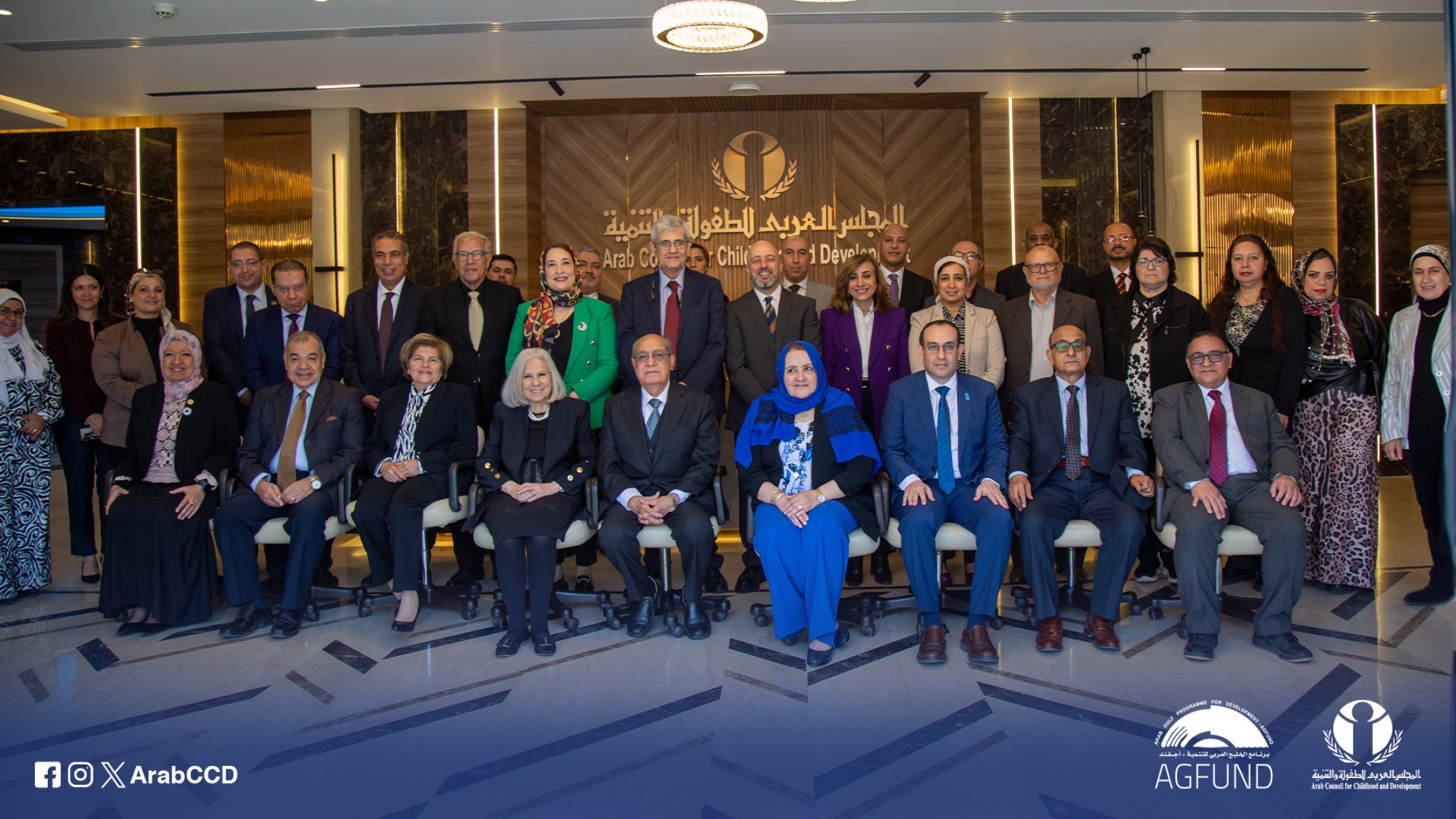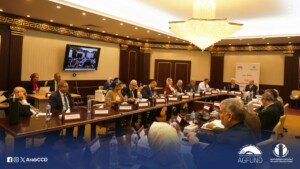
April 16, 2025
The Arab Network for Early Childhood participated in the workshop A Strategic Vision for Childhood in a Changing World, organized by the Arab Council for Childhood and Development on April 15–16 in Cairo.
The workshop was held in the belief that childhood issues are a collective responsibility that transcends institutions and societies. It was also held in response to the Arab Council’s vision of developing a strategic and intellectual framework that repositions childhood at the heart of the Arab development project. In addition, it aimed to reach a general framework for the structure of the Arab Council’s Strategic Plan (2026–2028).
Thirty experts from five Arab countries took part in the workshop, including academics, writers, thinkers, and representatives of regional and international organizations working in the field of childhood and development.
The discussions revolved around several issues, including global trends in the field of childhood, which has become a dynamic domain shaped by technological transformations, environmental pressures, geopolitical fluctuations, and shifts in knowledge structures. The workshop raised questions concerning the future of young children and early childhood development, through analysis of international reports and what has been achieved in the Sustainable Development Goals related to Arab childhood and technology in education, aiming to derive policies and directions toward 2028.

The workshop concluded with the following recommendations, which included both general proposals and others related to the Arab Council’s upcoming strategy:
- The importance of formulating a strategy that serves as a general reference framework—one that considers the diversity and variation among Arab countries, allows for adaptation to national specificities and the needs of each country individually, ensures coherence of vision and diversity of implementation mechanisms, and strengthens the role of the Arab Council for Childhood and Development as a reference think tank. The recommendation also emphasized encouraging multi-stakeholder partnerships across planning, implementation, monitoring, and evaluation phases.
- Affirming the importance of embedding an enlightening dimension in childhood approaches, through the integration of values education, digital citizenship, and the promotion of belonging within programs, curricula, and policies. This would contribute to building the personality of the Arab child capable of positive engagement with society and the world.
- Calling for the establishment of reliable reference databases to monitor the status of childhood using quantitative and qualitative indicators, forming a scientific foundation for evidence-based policy- and program-making, and for precise impact measurement.
- Proposing the adoption of “child-friendly budgets” within national policies that intersect with various ministerial sectors, based on a comprehensive vision responsive to rapid changes—ensuring diversification of funding sources. The recommendation also stressed enabling Arab children with financial skills, and promoting the economic empowerment of children and their mothers through sustainable economic and social initiatives that ensure the full inclusion of vulnerable groups and reduce multidimensional poverty that impacts children’s development opportunities.
- Emphasizing the need to expand psychological support and care services for children, while linking these services with integrated community awareness campaigns that promote the importance of mental health and emotional balance throughout childhood.
- Highlighting the issue of children in areas of conflict and crisis within the Arab Council’s new strategy (2026–2028), recognizing them as among the most vulnerable groups in urgent need of multi-dimensional intervention and support.
- Prioritizing children with disabilities within community integration plans, with expansion of special education programs and the provision of inclusive, multi-modal learning environments that meet their various needs.
- Integrating digital technology into the educational process through flexible approaches that accommodate the cultural and social differences across Arab countries, while ensuring a human-centered balance between technological tools and direct educational interaction. The recommendation also called for establishing an Arab system for digital empowerment of children—ensuring psychological safety, privacy, and the protection of digital rights, given the growing presence of the virtual world in children’s lives.
- Affirming the development of the new “Arab Council for Childhood and Development Award” as an intellectual and societal incentive aligned with current transformations. The award should become a leading Arab platform to promote innovation and applied research in childhood-related fields—particularly in light of digital transformation and artificial intelligence—while affirming its identity as an initiative of the Arab Council.
- Continuing to convene discussions and organize events that showcase examples of Arab intellectual thought, and inviting the thinkers behind these visions to contribute to the development of the Arab Council’s fifth strategy (2026–2028).
 The Arab Council for Childhood and Development in Egypt: Strategic Workshop on Childhood in a Changing World
The Arab Council for Childhood and Development in Egypt: Strategic Workshop on Childhood in a Changing World 

